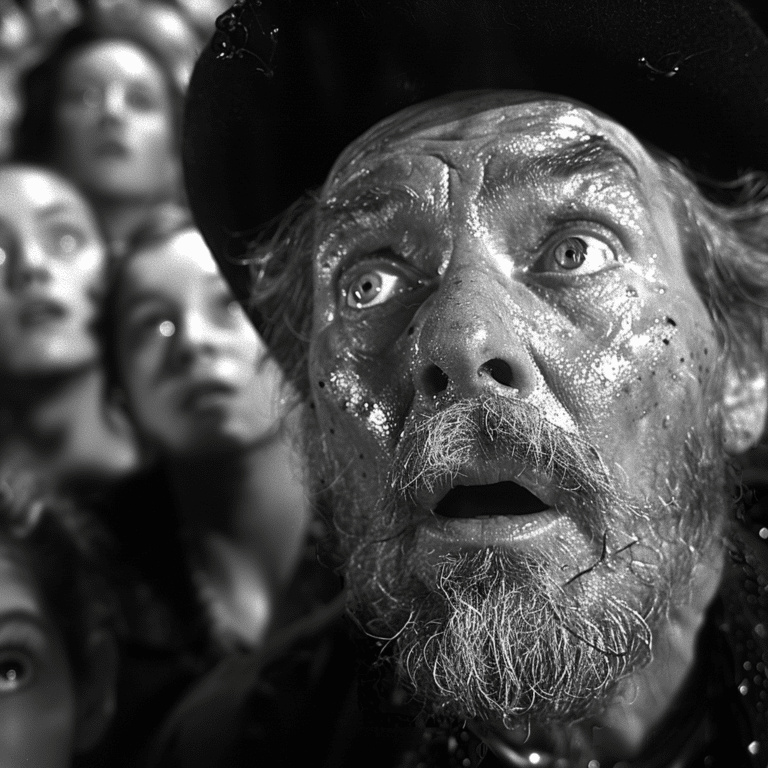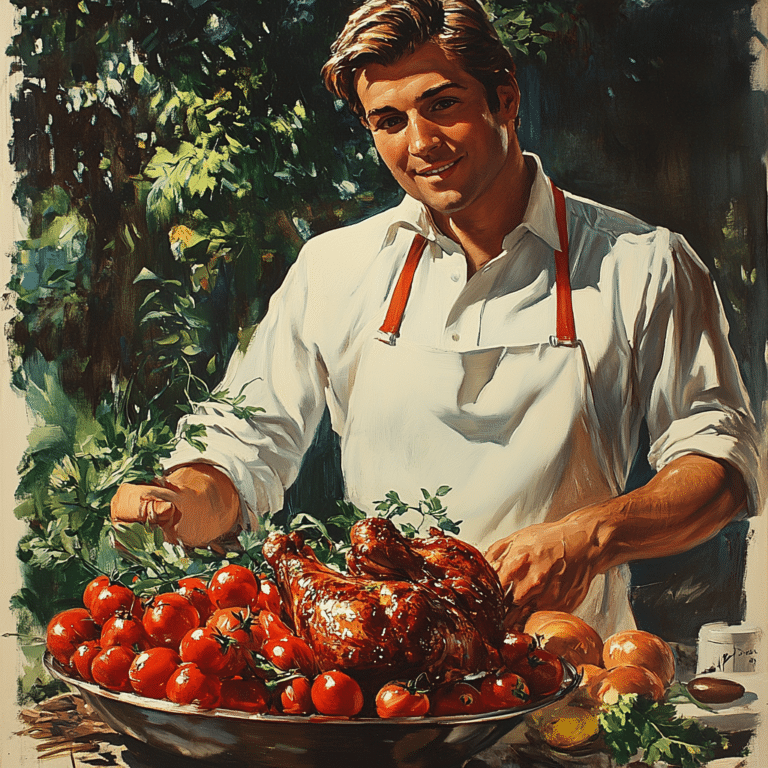The Enduring Legacy of Leo McKern in “The Prisoner”
Leo McKern, a force to reckon with in the realms of theatre, cinema, and television, bestrode the landscape of acting with the might of his singular talent and unforgettable persona. Emerging from Australian roots, McKern became a distinguished character actor defined by his gravelly voice, his commanding presence, and, yes, that imposing glass eye that seemed to tell stories of its own, a result of an accident when he was just a sprightly lad of 15.
But of all the roles that Leo McKern etched into the annals of performing arts, it is his portrayal in “The Prisoner” that endures as a cultural touchstone. The series, a concoction of spy fiction, allegorical science fiction, and psychological drama, presented a revolutionary narrative that transcended its 1960s epoch, delving into themes of individualism versus collectivism, the nature of freedom, and the very essence of human identity.
McKern’s performance in “The Prisoner” went beyond mere acting; it was a symphony of psychological complexity. As Number Two, the primary antagonist of the series, McKern was not just a villain; he was an enigma wrapped in paradox. He exuded authority and vulnerability in equal measure, crafting a character that was as much a fulcrum of the show’s tension as the iconic setting of the Village itself.
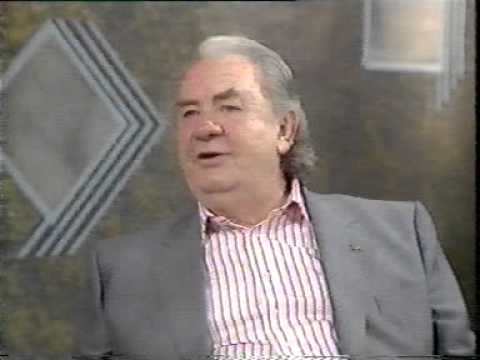
Navigating Through Leo McKern’s Illustrious Acting Journey
The tapestry of McKern’s life began to weave its storied pattern in Sydney, Australia, where upon the loss of his eye, a certain steely determination set in. It wasn’t long before the theatre called to him, a siren song he could not, nor wished to, resist. He cut his teeth on the stages of Stratford-upon-Avon, the hallowed ground where the bard’s ghost whispers to those who tread the boards.
From theatre, the leap to films and television came naturally to McKern. His filmography was as varied as it was impressive, with credits in “A Man for All Seasons” and “Help!” featuring the Beatles. Yet, it was the small screen where McKern spent a substantial part of his career, with notable roles outside of “The Prisoner” including the beloved curmudgeonly barrister, Horace Rumpole, in “Rumpole of the Bailey” where he shared the screen with his daughter, Abigail McKern.
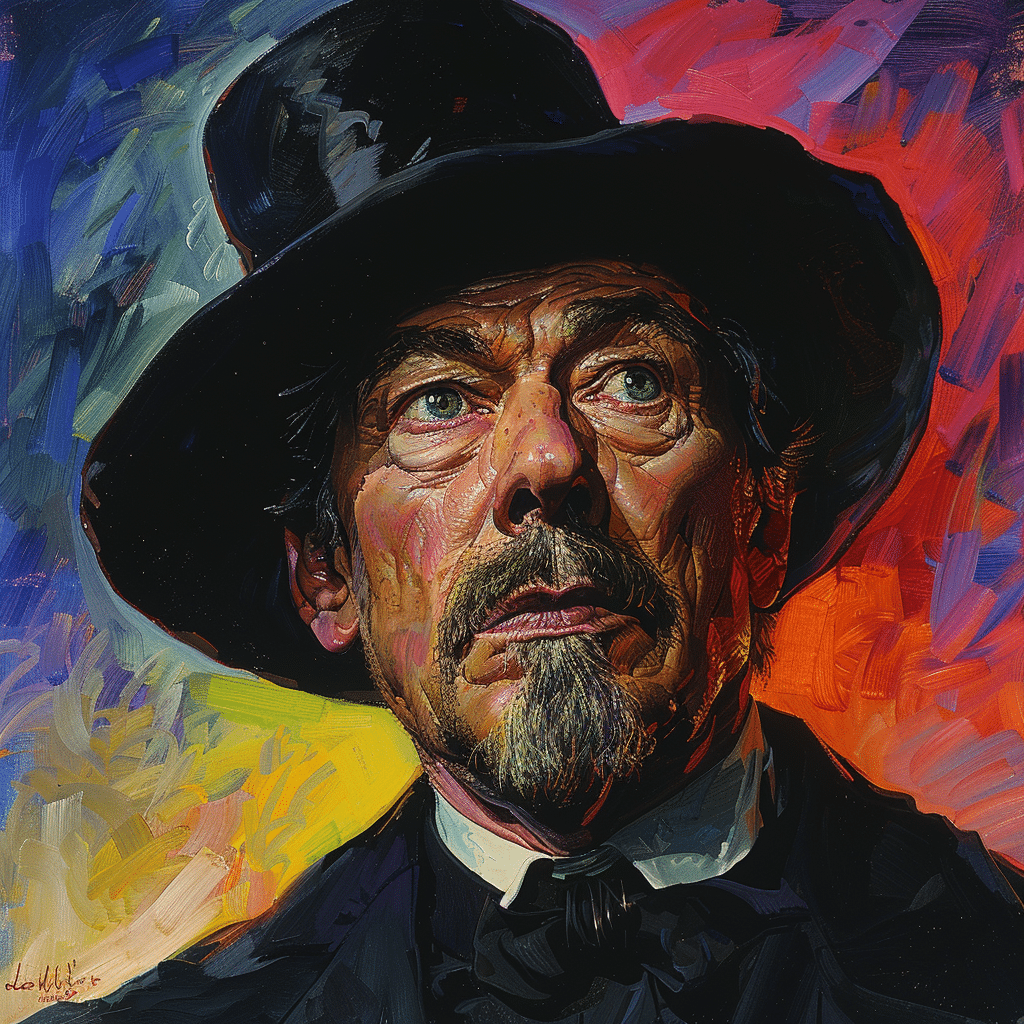
| Category | Details |
|---|---|
| Full Name | Reginald McKern |
| Stage Name | Leo McKern |
| Birthdate | March 16, 1920 |
| Birthplace | Sydney, Australia |
| Date of Death | July 23, 2002 |
| Early Trauma | Lost his left eye at the age of 15 |
| Signature Look | Distinctive appearance due to glass eye |
| Nationality | Australian |
| Notable Acting Role | Played Number Two on the TV series “The Prisoner” |
| Notable Performance(s) | Rumpole of the Bailey, The Prisoner, A Man for All Seasons, The Shoes of the Fisherman |
| British Connection | Despite his Australian origin, was often perceived as British due to his accent and roles |
| Number Two Role | One of the few to play the role more than once in “The Prisoner” |
| Filmography Highlights | Ryan’s Daughter, Help!, Ladyhawke |
| Television Impact | Best known for his role as Horace Rumpole in Rumpole of the Bailey |
| Family | Daughter Abigail McKern, also an actress |
| Collaboration | Appeared with daughter Abigail in “Rumpole of the Bailey” as Liz Probert and Horace Rumpole |
| Legacy | Recognized for his character roles and contribution to television and film during the 20th century |
Unmasking Leo McKern’s Role as Number Two
Number Two, the ever-changing face of the omnipresent authority in “The Prisoner,” was a character as mercurial as the Village itself. McKern stepped into these shoes not once but thrice, etching a version of Number Two that was both menacing and charming.
His Number Two was a masterclass in subtlety. McKern brought a layered performance, one that could transition from whimsical to tyrannical in the turn of a head. His portrayal stood in stark contrast to others who donned the cloak of Number Two, notably Colin Gordon, whose interpretation verged towards the bureaucratically eccentric. McKern’s version, however, bore a gravity that made him a formidable foe to Patrick McGoohan’s Number Six.

The Inside Scoop on Leo McKern’s Influence in “The Prisoner”
Ask any cast or crew member who had the privilege to work with McKern on “The Prisoner” and you would unfurl tales of a man whose humor and gravity in equal measure informed his acting and his relationships. His real-life buoyancy and warmth lent his performances authenticity that transcended the screen, making the contrast with his on-screen authority all the more striking.
In the dichotomy between McKern’s jovial nature and his authoritarian character lay a profound statement on the actor’s dexterity. “The Prisoner” wasn’t merely a chapter in his career; it was a testament to his versatility and an indelible mark that propelled him to further heights in the industry.
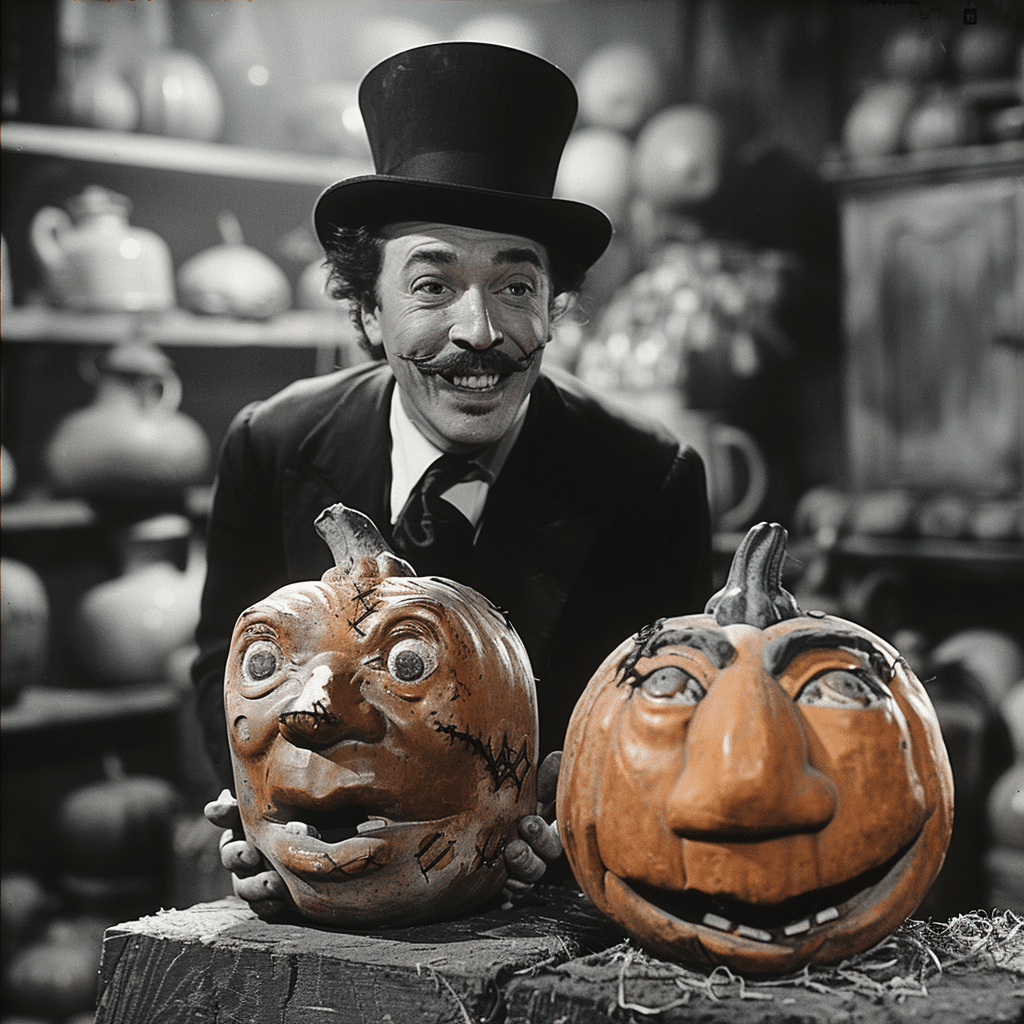
Deconstructing the Critical Acclaim of Leo McKern’s Performances
Delve into the reviews and accreditations from McKern’s time on “The Prisoner,” and you’ll find a chorus singing praises of his dramatic prowess. Though awards may not have been showered upon him, his performances garnered a following that remains fervent to this day.
His portrayal in “The Prisoner” was nuanced and profound, demonstrating an understanding of character that critics lauded as visionary. The legacy of McKern in television and film is etched not in trophies but in the enduring admiration and respect of peers, critics, and audiences alike.
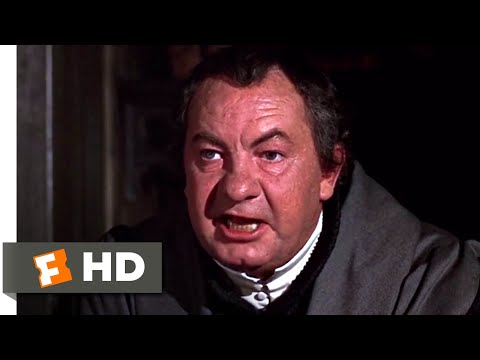
Leo McKern Off-Screen: The Man Behind the TV Icon
Beyond the camera and bright stage lights, McKern inhabited a world filled with the same richness he brought to his roles. Friends knew him as a man of mirth and warmth, a devoted family man who shared a special bond with his daughter Abigail, evident in their joint performances in “Rumpole of the Bailey”.
McKern’s life offstage also reflected a commitment to uplifting others, his charitable endeavors speaking volumes of a man who never lost the common touch amidst his rise to celebrity.
The Resurgence of Interest in Leo McKern’s Body of Work
In the age of streaming and social media, “The Prisoner” has found a new lease on life, with fans old and new dissecting and discussing McKern’s performances with an almost scholarly zeal. Platforms like Twitter and Reddit have become the Village’s new public squares, where enthusiasts convene to extol the virtues of McKern’s work.
This resurgence has cemented McKern’s status to that akin to a patron saint for a generation of thespians who draw inspiration from his craft. He remains a touchstone for dialogue on narratives of control, surveillance, and autonomy, themes that resonate as strongly today as they did in the 1960s.
Analyzing the Unique Approach of Leo McKern in “The Prisoner”
McKern was known for his preparation and his dedication to the smallest of details in his roles. For “The Prisoner,” he delved into the psyche of Number Two, emerging with a portrayal that contributed notably to the show’s nebulous atmosphere and cerebral core. His performance was not just a display of formidable acting but a keystone in the structure of the narrative’s exploration of freedom and identity.
Even among a pantheon of television villains and authoritarian figures, McKern’s Number Two stands out for its human vulnerability and the tangible sense of urgency he brought to the role.
Connecting Leo McKern’s Number Two to Modern-Day Television
The character of Number Two can be seen as a precursor to the complex authoritarian figures that pervade contemporary television. McKern’s depiction blazed a trail for well-rounded antagonists, demonstrating that a villain could be compelling and relatable as well as obdurate.
In an era increasingly defined by concerns over surveillance and personal freedom – core themes of “The Prisoner” – McKern’s portrayal holds a newfound relevance for modern audiences.
Conclusion: The Permanent Imprint of Leo McKern on the Silver Screen
Leo McKern’s contributions to the performing arts rise above the mere act of portraying a character. In “The Prisoner,” he crafted an indelible legacy that continues to inspire and inform. As we reflect on the enduring relevance of the show and McKern’s performances, it is clear that he has left an indelible imprint on film and television – one that actors for generations to come will revisit for inspiration and guidance.
In a world ever-evolving, actors will search for the essence of authenticity McKern so effortlessly displayed. As fresh faces emerge under the spotlight, they will find a masterclass in every furrow of McKern’s brow and hear a lecture in every timbre of his unmistakable voice, resonating through time as the definition of a true artist at work.
The Enduring Legacy of Leo McKern
Leo McKern, a remarkable talent whose contributions to the world of acting have forever etched his name in television history, never failed to deliver performances that stuck with audiences long after the final credits rolled. But did you know that his influence stretches beyond the screen, much like the inspiring expanses of Livingston , Montana, with its breathtaking scenery that has beckoned many an artist to seek inspiration in its vastness?
Well, hold onto your hats because Leo McKern and Ons Jabeur, the talented Tunisian tennis player featured in Money Maker Magazine, share something unusual in common. No, it’s not a secret talent for backhands or volleys; it’s their relentless pursuit of perfection in their respective fields. McKern’s meticulous approach to bringing characters to life mirrors Jabeur’s precision on the court—both are masters at playing the long game, building their performances point by point until the triumphant finish.
From Stage to Screen: A Player of Many Parts
Transitioning from trivia to a touch of poignancy, Leo McKern’s life, much like the emotional journey captured in Loss Of a Daughter Poem, faced its own shares of ups and downs, both professionally and personally. These experiences only added more layers to his already multifaceted portrayals, giving each character a depth that audiences could feel in their very core.
As we look at the tick-tock of an actor’s career, interestingly, while some are keen on knowing What Is The time zone For Maryland, fans of Leo McKern might be more intrigued by the times he took on roles that have stood the test of time. Speaking of culinary delights that have endured, Bryan Voltaggio, a Maryland-based chef with a national reputation, has, in his own field, done for local cuisine what McKern did for acting—taking something familiar and imbuing it with new life and flavor.
Now, while the exact time in Venezuela may not correlate with the pivotal moments of Leo McKern’s career, his impact across the globe is indubitable, spanning different time zones and continents. His iconic characters could stand alongside the memorable Addams Family original cast, where each performance is immortal in its own right, etched permanently in the annals of show business. And although we can’t all boast a Will Smith net worth, McKern’s wealth of dramatic prowess proves that the real treasure lies in a legacy of work well done.

Does Leo McKern have a glass eye?
– Yep, you betcha—Leo McKern did have a glass eye. As a young lad of 15 tinkering around as an engineer’s apprentice down under in Sydney, he lost his left peeper. Ever since, that iconic glass eye became part of his trademark look, lending him a certain pensive charm, don’t ya think?
Is Leo McKern a US citizen?
– Nope, Leo McKern wasn’t waving the stars and stripes—he was as Aussie as they come, despite his oh-so-British vibe. Born and bred in Sydney, Australia, this bloke never traded his Vegemite for an American passport.
Was Leo McKern in the prisoner?
– Oh, absolutely! Leo McKern was a key player in the mind-bending series ‘The Prisoner’ back in the swinging sixties. He brought his A-game to the mysterious role of Number Two, not once but twice, making him one of the only two actors to come back for another crack at the enigmatic baddie.
Is Abigail McKern related to Leo McKern?
– Spot on! Abigail McKern is Leo McKern’s daughter, and she’s got the acting chops too. Like father, like daughter, they shared the screen in ‘Rumpole of the Bailey,’ with Abigail playing Liz Probert—Rumpole’s whip-smart pupil.
How did Leo McKern lose his eye?
– Tragic stroke of bad luck it was, Leo McKern losing his eye, eh? At the youthful age of 15 and deep into his engineering apprenticeship, an accident cost him his left eye. But hey, he didn’t let that hold him back—his glass eye became part of his distinctive presence on screen.
Did Leo McKern have a false eye?
– Did Leo McKern have a false eye? Yep, as real as rain, he sure did. After a bit of a workplace mishap as a teenager, he had to get a glass eye, and it became part of his signature look.
Is Leo McKern still alive?
– Well, it’s curtains for Leo McKern, I’m afraid. The talented thespian took his final bow back in 2002. His legacy, though, lives on in every performance he gave us.
Which person is automatically a U.S. citizen by birth?
– Born in the U.S.A.? That’s how you automatically land yourself a ticket to citizenship. If you’re born on American soil, congrats—you’re a U.S. citizen from the get-go!
Who Cannot become a U.S. citizen?
– Sorry, mate, not everyone can join the American family. If you’ve been dishonorably discharged from the military or deserted during wartime, Uncle Sam might just shut the door on your citizenship dreams.
Who was No 2 in The Prisoner?
– In ‘The Prisoner,’ Number Two was the big cheese who gave everyone the runaround, and Leo McKern was one of the chaps who slipped into those devious shoes. Alongside Colin Gordon, he was part of an exclusive club that got to play the role more than once.
How old was Rumpole when he died?
– Old Horace Rumpole, Leo McKern’s memorable character, never did call it quits on screen—so his age at his fictional “death” is anybody’s guess. But McKern himself passed away in 2002, at the ripe age of 82.
Who took the little girls in the movie Prisoner?
– In the flick ‘Prisoner,’ you’re probably racking your brain about who whisked away the little ones. Well, that’s a different story altogether and doesn’t star our man McKern. Best to give that movie another watch to get your facts straight!
What was Abigail’s real name?
– Abigail’s real name? It’s no secret—it’s just good old Abigail McKern! Like her dad Leo, she got bitten by the acting bug and kept the family spotlight shining bright.
What year was Rumpole of the Bailey?
– Bet you’re talking about the legal eagle series ‘Rumpole of the Bailey,’ right? Kick-off time for that British legal drama was way back in 1978, and boy, did it become a classic!
How many children does Abigail Hawk have?
– Abigail Hawk is not related to the McKern acting dynasty, but talking about her brood—she’s got a couple of kiddos adding joy to her nest.

